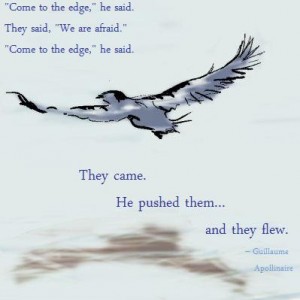I’ve been sampling some indie-published eBooks lately, and I must say that most writers are not helping the long, sad reputation held by self-published authors. Only the rare exception is edited and polished to a fine sheen.
No, I don’t think readers expect to see absolute perfection, which is, in any event, largely subjective. Even legacy publishers put out the occasional sloppy piece. The difference is that their sloppiness represents perhaps 10% of releases, whereas self-publishers offer sloppiness at the rate of about 99%. Big difference.
Spelling errors, bad grammar, punctuation errors, a bucketful of adverbs, POV issues and structural errors—all on the first 2 pages? Come on. How are they going to succeed in the long run when presenting that to readers?
I’m fascinated by the manner in which indie publishers respond to these kinds of posts. Most of them get angry, or feel offended, or both. Yet they’re often just one step away from an excellent book: professional editing. I’m not trying to insult, I’m trying to help. I promise.
Too many indie authors choose to forgo this expense, offering any number of excuses—though it’s invariably about money. They fear they won’t recoup their investment. Let’s be honest: that’s possible. They enjoy no guarantee of success, no assurance they’ll sell enough copies of their book, at a high enough royalty, to recoup those costs. Yet without solid editing, their chances of success decrease dramatically. We return to the old “chicken and egg” argument. Q1: How can I afford editing until I’ve sold a lot of books? Q2: How can I sell a lot of books if I don’t have them professionally edited?
If they stop for a moment to extend the logic, to consider their business model, they’ll come time and time again to Q2—and to its clearly implied answer.
When they publish their own work, they’re no longer JUST an author; they’re now a publisher. And publishing, like any business, requires a little up-front investment in order to do it right. They can minimize these costs, if creative (heck, just look at the Evolved Publishing model), but they cannot eliminate them—at least, not without dooming their business to failure before they’ve even left the starting blocks.
Many indie publishers are languishing with poor sales, finding the spigot turned off as soon as their family and friends stop buying. Why? Because only their family and friends will support them no matter what… even if the work is substandard.
They simply must have a well-edited manuscript, and an attractive, professional cover, and some kind of coherent marketing plan, preferably with the help of others working on their behalf.
When will I get tired of this preaching? When the world of indie publishers has converted. Let me have an, “Amen!”
Look, I say this not just as a publisher of eBooks, or as an editor of eBooks, or as an author of eBooks—I say this as a READER of eBooks. I’ve been sampling works to purchase and download to my Kindle, but I’m picky. If I’m going to spend my hard-earned money on a book, whatever the price, I expect a professional product.
One look at how few indie authors are actually making a living at it makes one thing clear: I’m not alone in that requirement.
Please, Dear Aspiring Author, do not shoot yourself in the foot. Be a professional. Do it right. And reap the rewards.
‘Til next time, and as always, remember: To write well, you must work hard. To succeed in this tough gig, you mustn’t be lazy (or discouraged).
———-










Please follow me here: